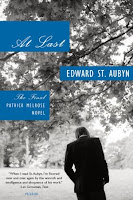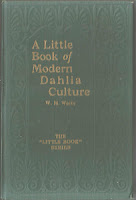 Paula Bomer is the author of Nine Months (Soho Press) and Baby & Other Stories (Word Riot Press). She is also the publisher and editor of Sententia Books.
Paula Bomer is the author of Nine Months (Soho Press) and Baby & Other Stories (Word Riot Press). She is also the publisher and editor of Sententia Books.Earlier this month I asked Bomer what she was reading. Her reply:
Right now I am reading The Man Who Loved Children by the Australian writer, Christina Stead. I'm a huge fan of Jonathan Franzen and while reading his latest collection of excellent essays, Farther Away, I came across an essay on The Man Who Loved Children. I'm not letting myself read the Franzen essay until I finish the novel, 527 pages of very small type, dense writing. Frankly, I'm finding it challenging but that's not necessarily a bad thing. It's also deeply, darkly depressing, from the beginning onward. There are flashes ofRead more about Nine Months, and visit Paula Bomer's blog.humor, but only flashes. In fact, when starting the book I thought "where can this go?" because it starts with the Pollit family already completely miserable. As it turns out, things can get worse and that's what seems to be happening.
Another book I'm reading is the forthcoming couplet of novellas, Could You Be With Her Now, by the amazing indie writer, Jen Michalski. Each novella is startling with bravery and a mastery of language and pacing. Also, they couldn't be more different, which is no small feat- to have such range. I can't wait for more of the world to know about Jen Michalski thanks to Dzanc Books, who will be publishing it very soon.
--Marshal Zeringue



















































